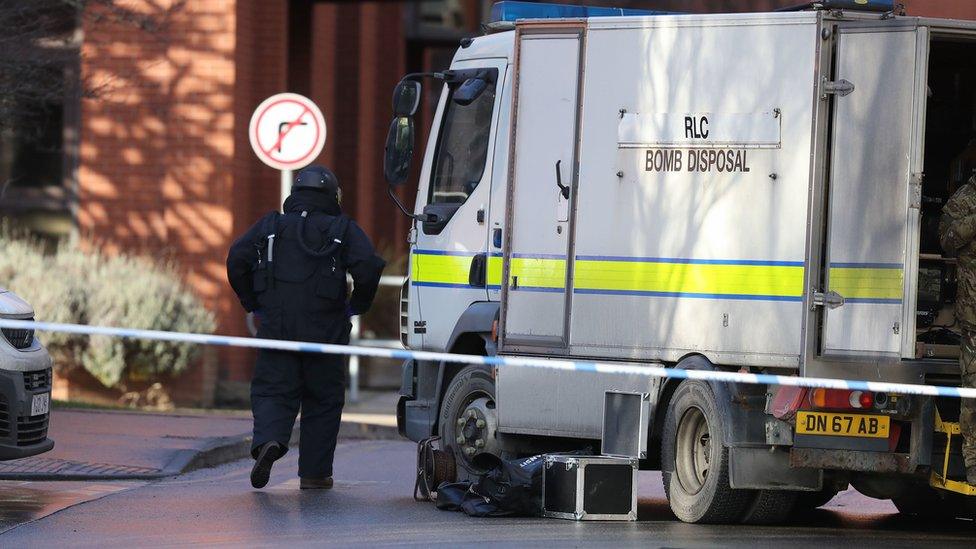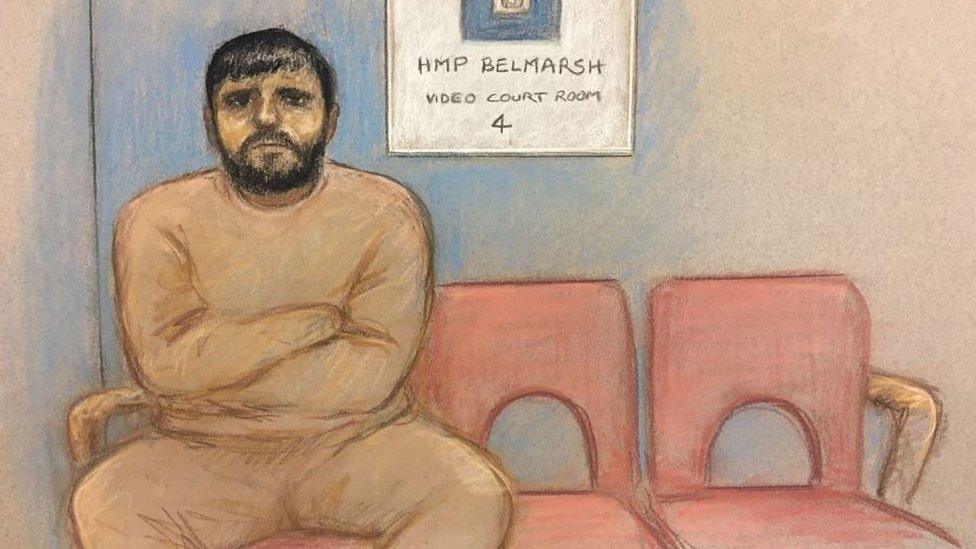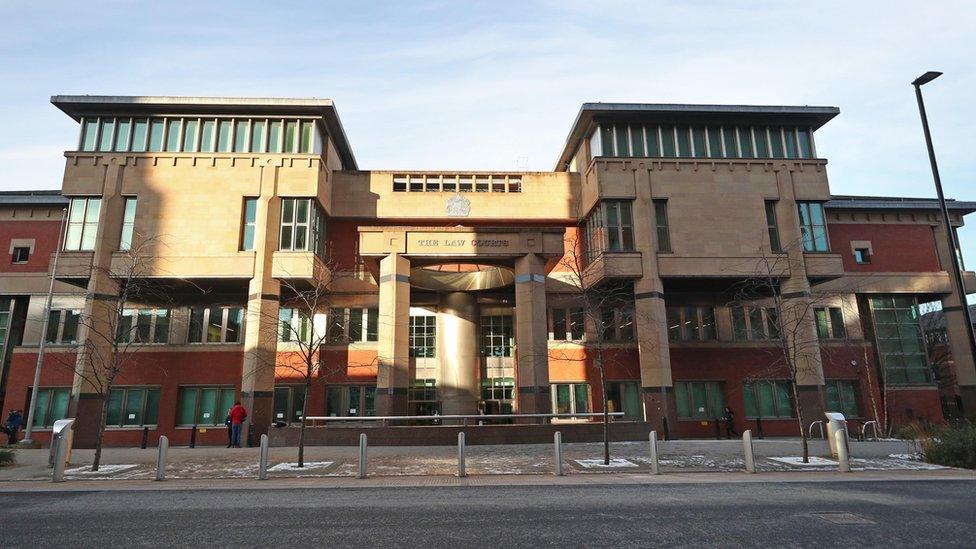Leeds hospital patient talked down bomber, terror trial told
- Published

Mohammed Farooq had planned to detonate an IED at St James's Hospital in Leeds, a court heard
A patient "saved many lives" by talking down a hospital worker who planned to "kill as many nurses as possible" with a homemade bomb, a court has heard.
Mohammed Farooq, 28, brought a pressure cooker device to St James's Hospital in Leeds on 20 January to "commit a terrorist atrocity," prosecutors claim.
The clinical support worker was arrested after patient Nathan Newby called police.
At Sheffield Crown Court, Farooq denies preparing acts of terrorism.
The jury heard the defendant told police after his arrest that the pressure cooker device was modelled on the bombs used in the deadly 2013 Boston Marathon attack, but was intended to be twice as powerful.
Opening the prosecution's case on Monday, Jonathan Sandiford KC said Farooq was a "self-radicalised, lone wolf terrorist" who had also planned to attack RAF Menwith Hill, near Harrogate, in North Yorkshire.
He said the defendant, of Hetton Road in Roundhay, Leeds, went to the hospital in the early hours of 20 January to "seek his own martyrdom" by detonating the bomb and "using bladed weapons to kill as many people as possible".
The jury heard Farooq sent a bomb threat to a colleague in the early hours of 20 January and was set to attack people leaving the hospital during the expected evacuation.
His text message to a nurse read: "I have placed a pressure cooker bomb on J28. It will detonate in one hour. Let's see how many lives you will save."
But in "a piece of good fortune" the nurse was off-duty and the message was not seen for almost an hour, meaning a full-scale evacuation did not happen, Mr Sandiford said.
'Luck intervened'
Farooq left the hospital but returned soon after with a new plan to wait in a Costa cafe for a staff shift change before detonating his device.
But the prosecutor told the jury "luck intervened again" when Mr Newby, who was standing outside the hospital's Gledhow wing smoking a cigarette, noticed the defendant, "realised something appeared to be amiss and began to talk to him instead of walking away".
Mr Sandiford said: "That simple act certainly saved many lives that particular night because, as the defendant was later to tell the police officers who arrested him, Mr Newby succeeded in 'talking him down'."
Farooq told Mr Newby about his plan to take the bomb into the hospital and "kill as many nurses as possible," the court heard. The defendant then handed his phone to the patient to call the police.
The prosecutor said Mr Newby stayed with Farooq to await police, "keeping him engaged and calm," and persuaded him to move away from the hospital's main entrance.
Officers found Farooq in possession of a viable improvised explosive device assembled from a pressure cooker and 9.9kg of low explosive, as well as two knives and black tape, the court heard.
He also had a blank-firing imitation firearm which he had planned to use to incite police to shoot him dead, the prosecutor said.

Mohammed Farooq, pictured in a court sketch during an earlier hearing, denies preparing acts of terrorism
The court heard Farooq had been radicalised through the internet and constructed the bomb with the help of an online article.
He also obtained viable instructions for the preparation of five deadly toxins or nerve agents, the jury was told.
The court heard the defendant identified RAF Menwith Hill, an air force base used by US intelligence services, as a target and had admitted making three visits to the site with the homemade bomb before 20 January.
Farooq told detectives he had travelled to Menwith Hill "because he liked to drive in that area of North Yorkshire," Mr Sandiford said.
During a police interview, the defendant also said he had only meant to scare people at the hospital and had no intention of detonating the bomb, the court heard.
Farooq harboured a grudge against several former colleagues and had been conducting a "poison pen" campaign against them, the jury was told.
The defendant has already admitted possessing the IED with intent to endanger life.
The court heard an expert who examined the bomb found that, if it had detonated, it would likely have caused a "significant explosion with metal fragments being ejected at high speed indiscriminately, with the potential to cause serious injury or possible death".
Farooq, who sat in the dock wearing a grey T-shirt and flanked by four prison officers, denies one charge of preparing acts of terrorism.
The trial continues.

Follow BBC Yorkshire on Facebook, external, X (formerly Twitter), external and Instagram, external. Send your story ideas to yorkslincs.news@bbc.co.uk, external.
- Published16 October 2023
